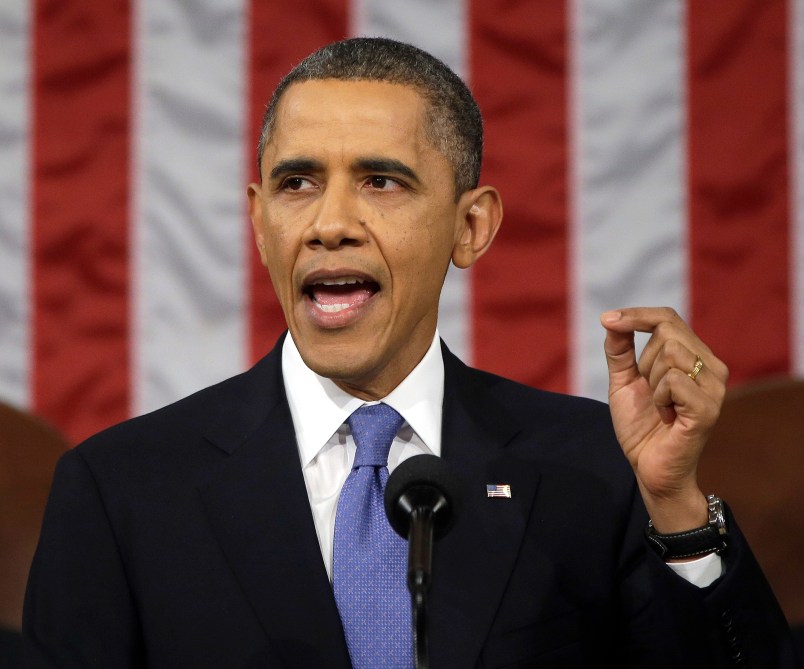In minute three of his State of the Union speech, President Barack Obama called up a vintage line about our global competitiveness: “The United States is better-positioned for the 21st century than any other nation on Earth.”
It was the kind of rhetoric you’d hear 20 years ago and not think twice. (In fact, President Bill Clinton used the exact same line in a 1995 speech, right after he praised this wonderful thing call the Internet.) But at this particular moment in time, that bold claim did make me think twice. Is Obama right?
 In some ways, Yes. Structurally speaking, the United States remains one of the best places to do business on earth. American companies are still relatively agile and innovative. Our top universities remain second to none. It’s easier for bosses to hire and fire private-sector employees here than in most developed countries — which has its pros and cons, needless to say, but businesses sure do like it.
In some ways, Yes. Structurally speaking, the United States remains one of the best places to do business on earth. American companies are still relatively agile and innovative. Our top universities remain second to none. It’s easier for bosses to hire and fire private-sector employees here than in most developed countries — which has its pros and cons, needless to say, but businesses sure do like it.
After slipping for four consecutive years, the United States crept back up to No. 5 in the World Economic Forum’s Global Competitiveness Index in 2013 (ringing in below Switzerland, Singapore, Finland and Germany).
In fact, if we compare our current selves to our old selves, we are making progress. In his speech, Obama rightly noted that we have the lowest unemployment rate we’ve had in over five years. He also bragged that our high school graduation rate is at its highest level in more than 30 years—which is to say that we are doing about as well as we did in the early 1970s. Even our health care costs are going up more slowly than they used to!
But if we compare ourselves to the rest of the world, things look rather different. Our unemployment rate is still higher than Australia, Canada, Germany or Japan. Twenty other countries now have higher high school graduation rates than we do. Young adults in America score better than older Americans on a new international test of adult literacy—but those same young Americans perform worse than their young peers in Australia, Canada, Estonia and the Netherlands, among other places. And we still spend far more on health care than the rest of the world—and get worse returns.
So it’s hard to argue that we are better-positioned for the future than any other nation on earth. It would be more accurate to say we are better-positioned than we sometimes were in the recent past. Or, a bit more inspirationally, that some of our states, cities and businesses are indeed leading the world.
Because there is good news: at a local level, many American politicians and business leaders are making the hard choices and pragmatic moves that must be made. Democratic Gov. Steve Beshear (who was a guest in the gallery last night) and his Kentucky colleagues have expanded Medicaid, launched a functioning health-care exchange and adopted a more rigorous set of standards for what kids should know — while Kentucky’s senators have done their best to dismantle the same common-sense policies nationwide.
Last year, nine states passed laws giving undocumented immigrants the right to drive. In California, lawmakers distanced federal immigration agents from local jails and granted unauthorized immigrants the right to practice law. “While Washington waffles on immigration, California’s forging ahead,” says California Gov. Jerry Brown (D).
“In this second, can-do America,” as the Economist noted in March, “creative policymaking is being applied to the very problems Congress runs away from.” There is cause for jingoism, in other words, but not in Washington.
Amanda Ripley is a journalist and the author of The Smartest Kids in the World — And How They Got That Way and an Emerson Senior Fellow in Washington, D.C.






